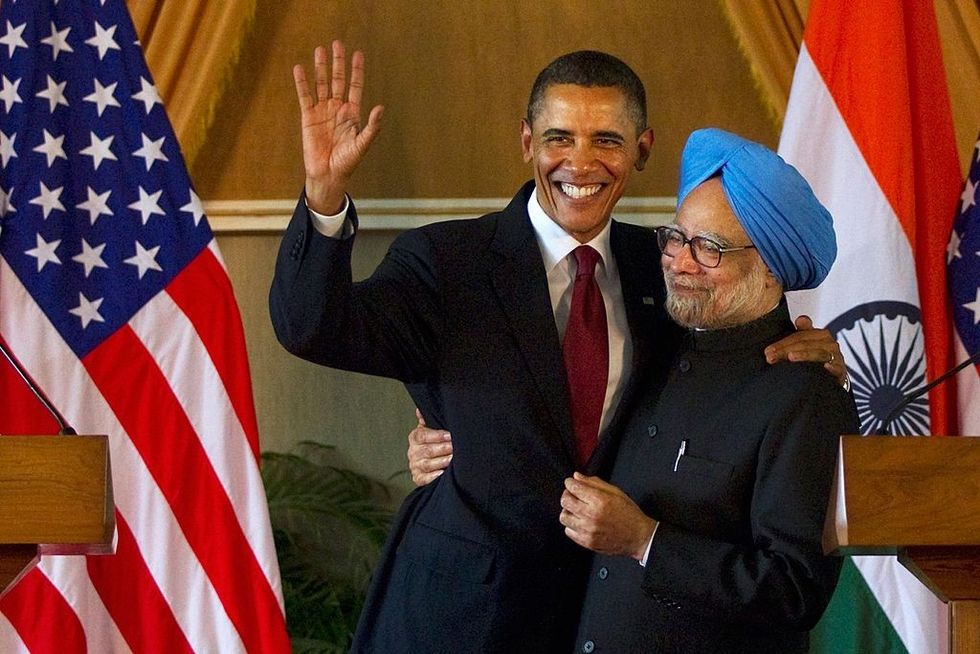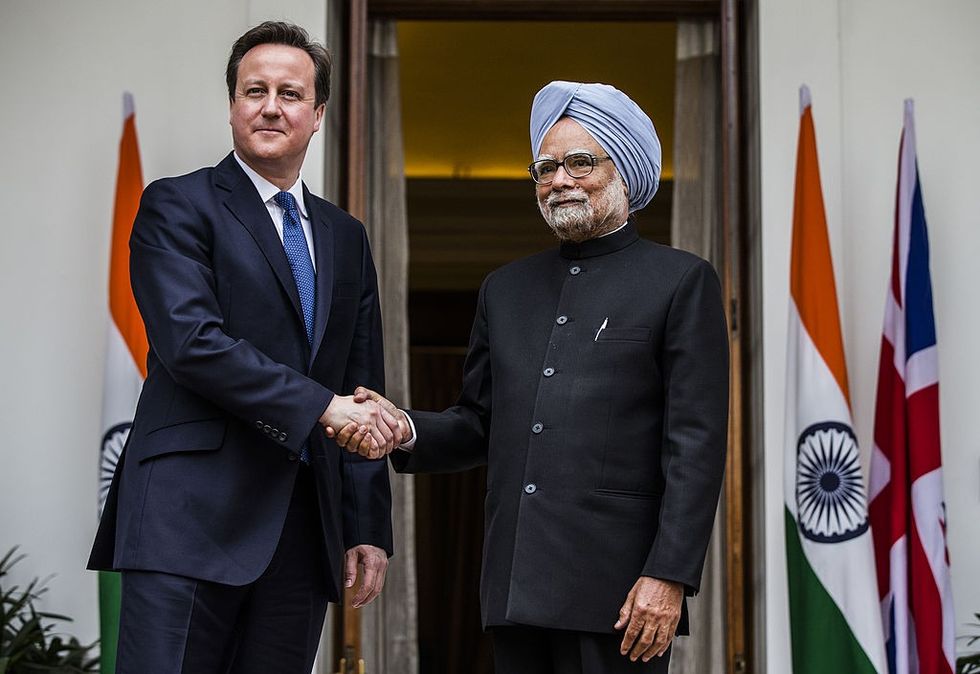FORMER US ambassador to the UN Nikki Haley will suspend her presidential campaign on Wednesday (6), according to a source familiar with her plans, ensuring that Donald Trump will win the Republican nomination and once again face Democratic president Joe Biden in November's election.
Haley will give a speech at 10am local time to address her future in the race, the source said, but she will not be giving an endorsement.
Haley lasted longer than any other Republican challenger to Trump but never posed a serious threat to the former president, whose iron grip on the party's base remains firm despite his multiple criminal indictments.
The rematch between Trump, 77, and Biden, 81 - the first repeat US presidential contest since 1956 - is one that few Americans want. Opinion polls show both Biden and Trump have low approval ratings among voters.
The election promises to be deeply divisive in a country already riven by political polarization. Biden has cast Trump as an existential danger to democratic principles, while Trump has sought to re-litigate his false claims that he won in 2020.
Haley, 52, had drawn support from deep-pocketed donors intent on stopping Trump from winning a third consecutive Republican presidential nomination, particularly after she notched a series of strong performances at debates that Trump opted to skip.
She ultimately failed to pry loose enough conservative voters in the face of Trump's dominance.
But her stronger showing among moderate Republicans and independents - she won unaffiliated voters by a wide margin in New Hampshire and notched almost 40 per cent of the vote in South Carolina - highlighted how Trump's scorched-earth style of politics could make him vulnerable in the Nov. 5 election.
On March 3, she won the Washington, D.C., Republican primary with 62.9 per cent of the vote, versus 33.2 per cent for Trump.
"It’s not surprising that Republicans closest to Washington dysfunction are rejecting Donald Trump and all his chaos," Haley campaign spokesperson Olivia Perez-Cubas said in a statement.
Biden has his own baggage, including widespread concern about his age. Three-quarters of respondents in a February Reuters/Ipsos poll said he was too old to work in government, after already serving as the oldest US president in history.
About half of respondents said the same about Trump.
Haley, a former governor of South Carolina, had been among the first Republican contenders to enter the race in February 2023, but she was largely an afterthought until garnering attention for her standout debate performances later in the year.
She put her foreign policy expertise at the centre of her campaign, adopting hawkish stances toward China and Russia and forcefully advocating for continued aid to Ukraine, a stance that put her at odds with the more isolationist Trump.
But she was reluctant to completely disavow her former boss - she served as Trump's UN ambassador - despite his four indictments and two impeachments. Trump showed no such reticence, frequently insulting her intelligence and Indian heritage.
Only in the last months of her campaign did Haley begin to forcefully hit back at Trump, questioning his mental acuity, calling him a liar and saying he was too afraid to debate her.
In the final weeks of the campaign, she became the standard-bearer for the anti-Trump wing of the party, a dramatic evolution for someone who just months earlier praised the former president in her stump speeches.
Still, she said she would pardon Trump if he were convicted in any of the criminal cases he faces, a position she has never abandoned.
As in 2020, the race is likely to come down to a handful of swing states, thanks to the winner-take-all, state-by-state Electoral College system that determines the presidential election. Arizona, Georgia, Michigan, Nevada, North Carolina, Pennsylvania and Wisconsin are all expected to be closely contested in November.
The central issues of the campaign have already come into focus. Despite low unemployment, a red-hot stock market and easing inflation, voters have voiced dissatisfaction with Biden's economic performance.
Biden's other major weakness is the state of the US-Mexico border, where a surge of migrants overwhelmed the system after Biden eased some Trump-era policies. Trump's hawkish stance on immigration - including a promise to initiate the largest deportation effort in history - is at the core of his campaign, just as it was in 2016.
Voters expect Trump would do a better job on both the economy and immigration, according to opinion polls.
Republican lawmakers, egged on by Trump, rejected a bipartisan immigration enforcement bill in February, giving Biden an opportunity to argue that Republicans are more interested in preserving the southern border as a problem rather than finding a solution.
Democrats are also optimistic that voter sentiment on the economy will shift in Biden's favour if economic trends go on rising throughout 2024.
(Reuters)


















 Former US president Barack Obama (L) with Manmohan Singh (Photo by Daniel Berehulak/Getty Images)
Former US president Barack Obama (L) with Manmohan Singh (Photo by Daniel Berehulak/Getty Images) David Cameron shakes hands with Manmohan Singh
David Cameron shakes hands with Manmohan Singh 
Ten million stories of migration to Britain